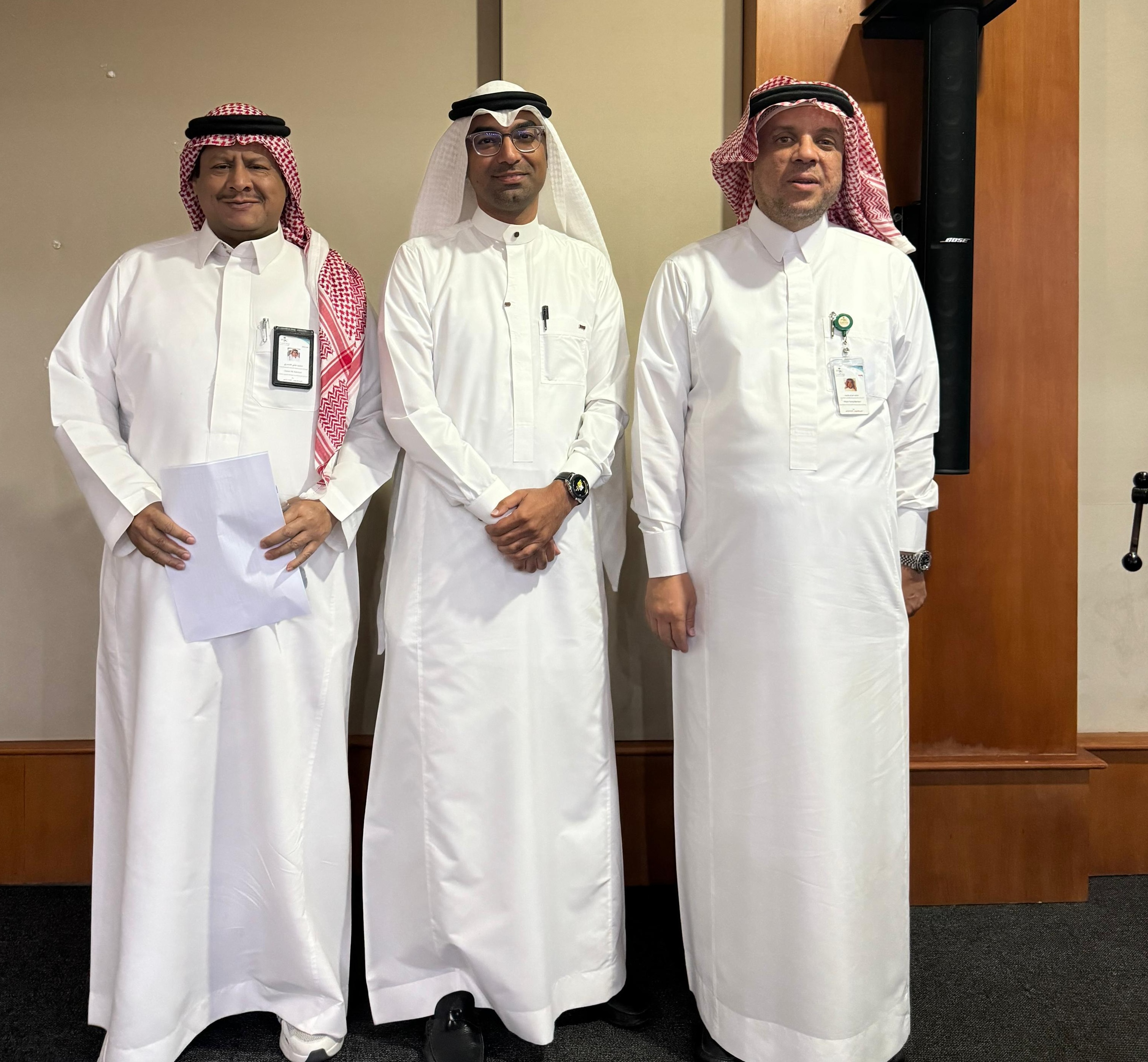
El cambio genera el cambio. El éxito de cualquier gran plan de progreso e innovación se basa en la idea de que cada cambio es un catalizador para el desarrollo y el crecimiento.
La transformación de la atención del ictus en el Reino de Arabia Saudí se está acelerando en la corriente de cambio con la implementación de Vision 2030, un ambicioso proyecto para la reforma económica, social y cultural para construir una sociedad fuerte y productiva. El plan incluye un programa de transformación sanitaria centrado en mejorar el acceso a la atención sanitaria, mejorar la calidad de la atención y cumplir con los estándares internacionales.
El programa también prioriza el uso de la tecnología para revolucionar la prestación de servicios sanitarios. Este es el contexto del Programa de preceptorado que surge de una asociación entre la Iniciativa Angels y el Ministerio de Salud.
Ahmed Azab, asesor de Angels, explica: “El programa de preceptorado es un programa educativo centrado en la implementación de la circuito del ictus para profesionales sanitarios seleccionados de diferentes hospitales remotos. Estos médicos y enfermeros experimentarán un periodo de cohabitación en un centro integral de ictus y regresarán a sus hospitales como defensores del ictus, equipados para implementar lo aprendido en el programa”.
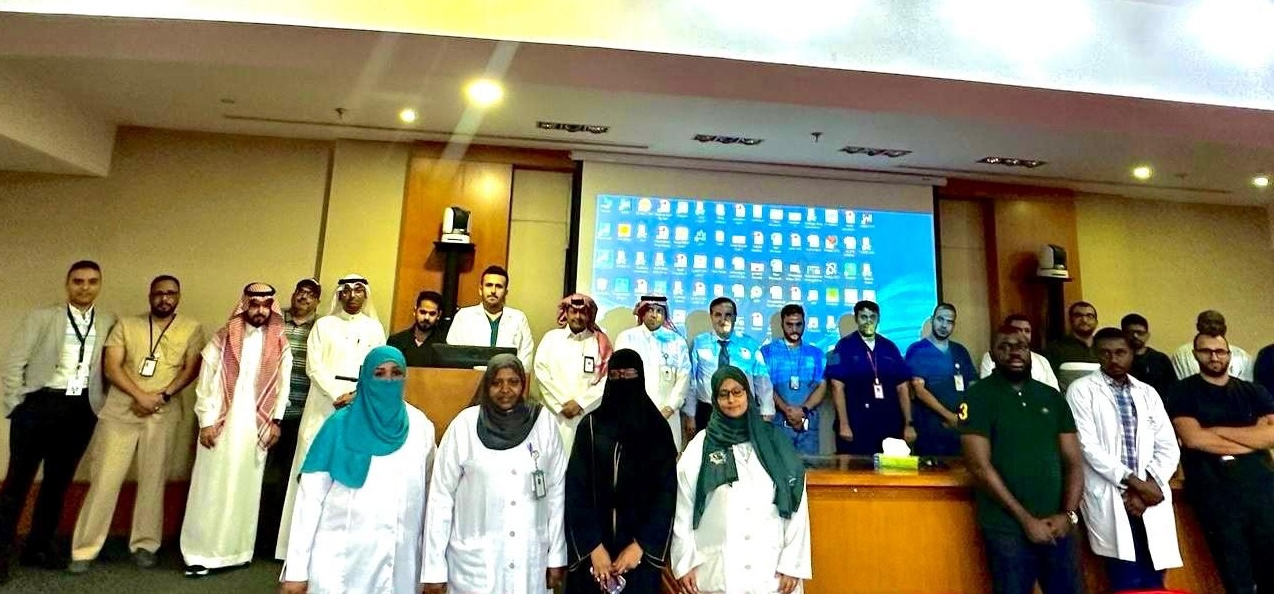
Al conectar hospitales remotos con un centro y garantizar que se cuenta con un equipo de ictus formado y una circuito optimizada, esta intervención también respalda el objetivo más amplio de aprovechar la tecnología para optimizar la prestación de atención sanitaria y los resultados de los pacientes. Permiteconsultar a los pacientes con ictus agudo ingresados en hospitales sin neurólogo.
El primer preceptorado tuvo lugar el 6 y 7 de marzo en el complejo médico King Abdulah de Jeddah y a él asistieron 30 profesionales sanitarios de la región occidental del país que habían sido designados por el Ministerio de Sanidad. Estos incluyeron 12 candidatos de medicina interna, tres de urgencias, dos de radiología y nueve de medicina general. Tras una visita por la unidad integral de unidad de ictus en el King Abdulah Hospital, transcurrieron dos días de formación intensiva que incluyó talleres sobre cómo organizar un equipo de ictus e implementar un protocolo de ictus, así como simulaciones y formaciones en la circuito hospitalaria sobre el simulador de pacientes virtual Body Interact.
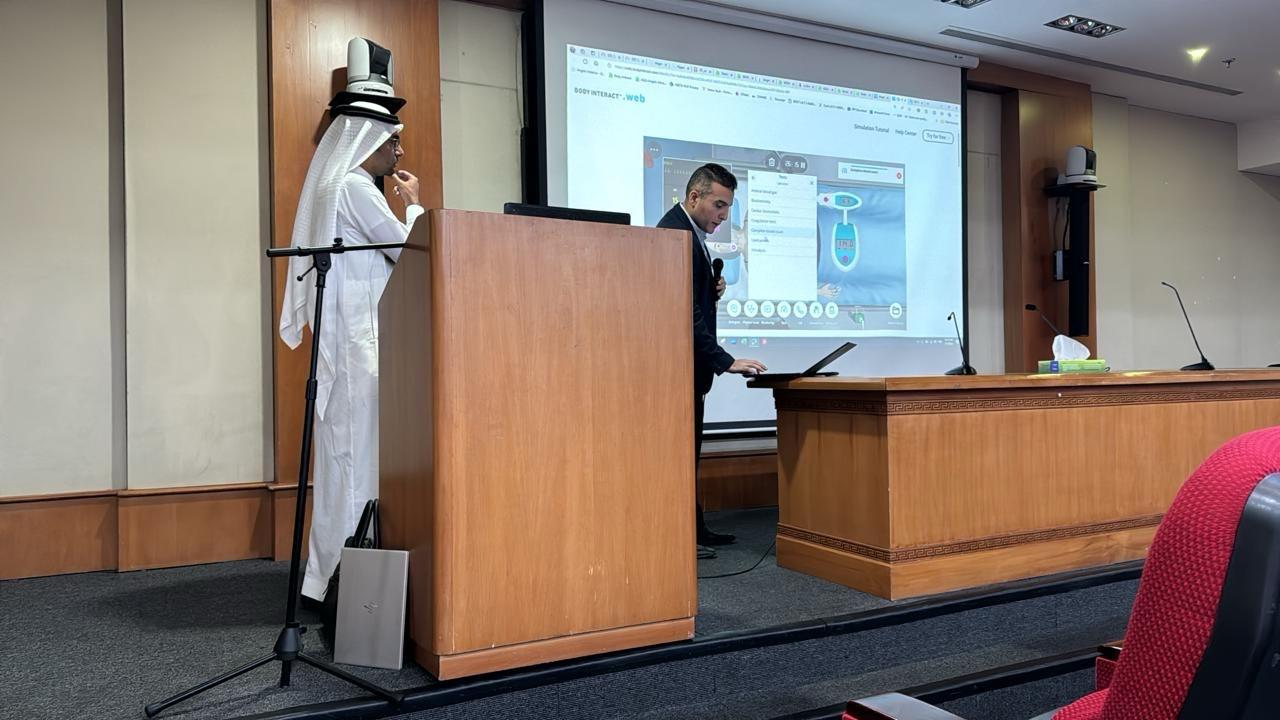
Comentando en las redes sociales, el Dr. Amr Mouminah, jefe de servicios de neurología en el 2.o grupo de salud de Jeddah en el Ministerio de Sanidad, situó el evento en el contexto de lograr la misión del reino y “mantener el ritmo con el desarrollo y la ambición”, añadiendo que su objetivo era “aumentar la concienciación y formar a los especialistas que no padecen ictus de los médicos para que trataran a estos pacientes”.
Como parte de las acciones de seguimiento acordadas con el Ministerio de Sanidad, el equipo de Angels de KSA seguirá apoyando a estos hospitales con formación y optimización de circuito. A su vez, el ministerio nombrará equipos de ictus, garantizará la disponibilidad de fármacos y de tecnología de imagen y establecerá indicadores clave de rendimiento para realizar un seguimiento del rendimiento.
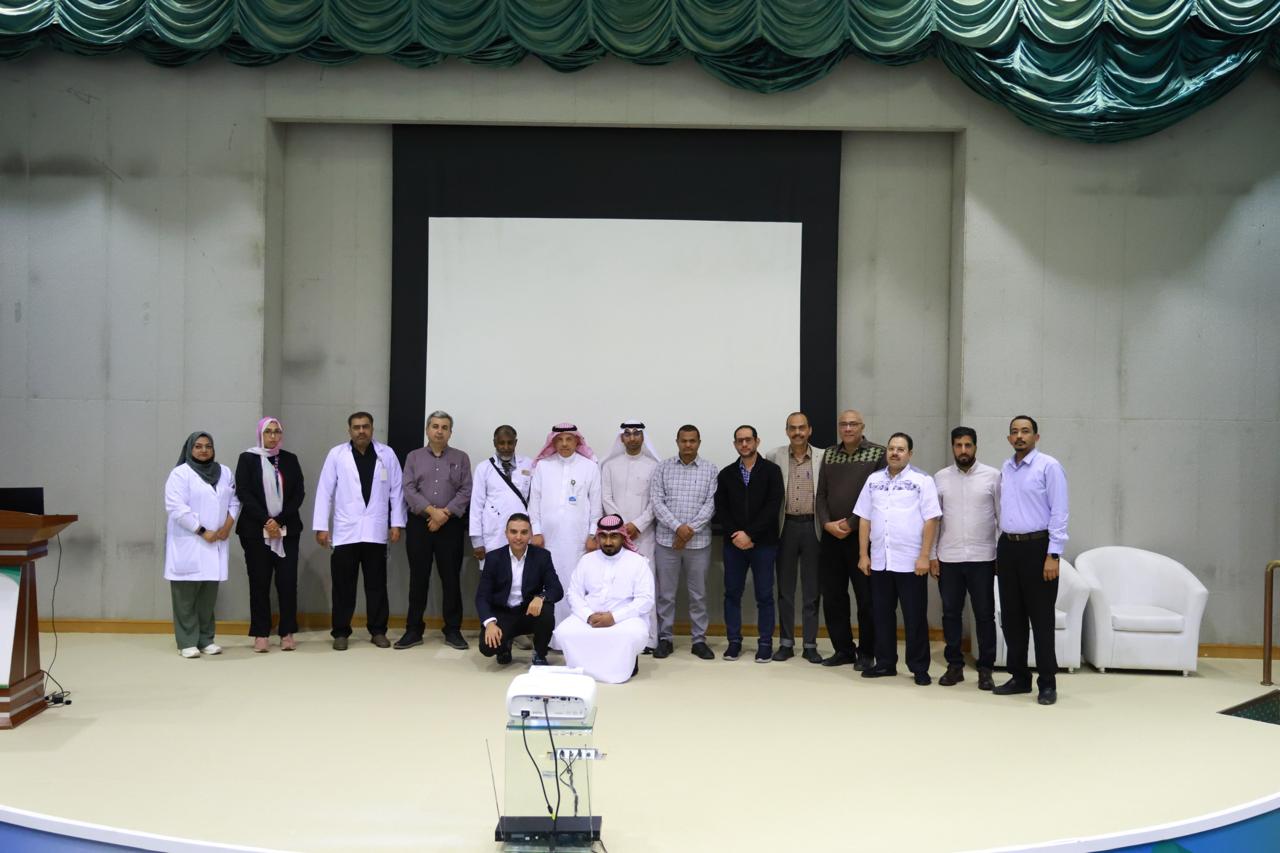
La segunda onda
El cambio no es un evento singular, sino uno conectado que pone en marcha una cadena de transformaciones. Tras el éxito de la primera oleada, Ahmed y el equipo comenzaron a planificar de inmediato la segunda cadena en la dinámica cinta cinemática de cambio interconectada.
Esta segunda ola tuvo lugar en el Hospital Al-Amal de Riadh el 7 de noviembre e implicó a profesionales sanitarios del norte y de partes centrales del Reino. Como antes, el objetivo era facilitar una formación integral para los campeones del ictus que les permitiría implementar lo aprendido en sus respectivos hospitales.
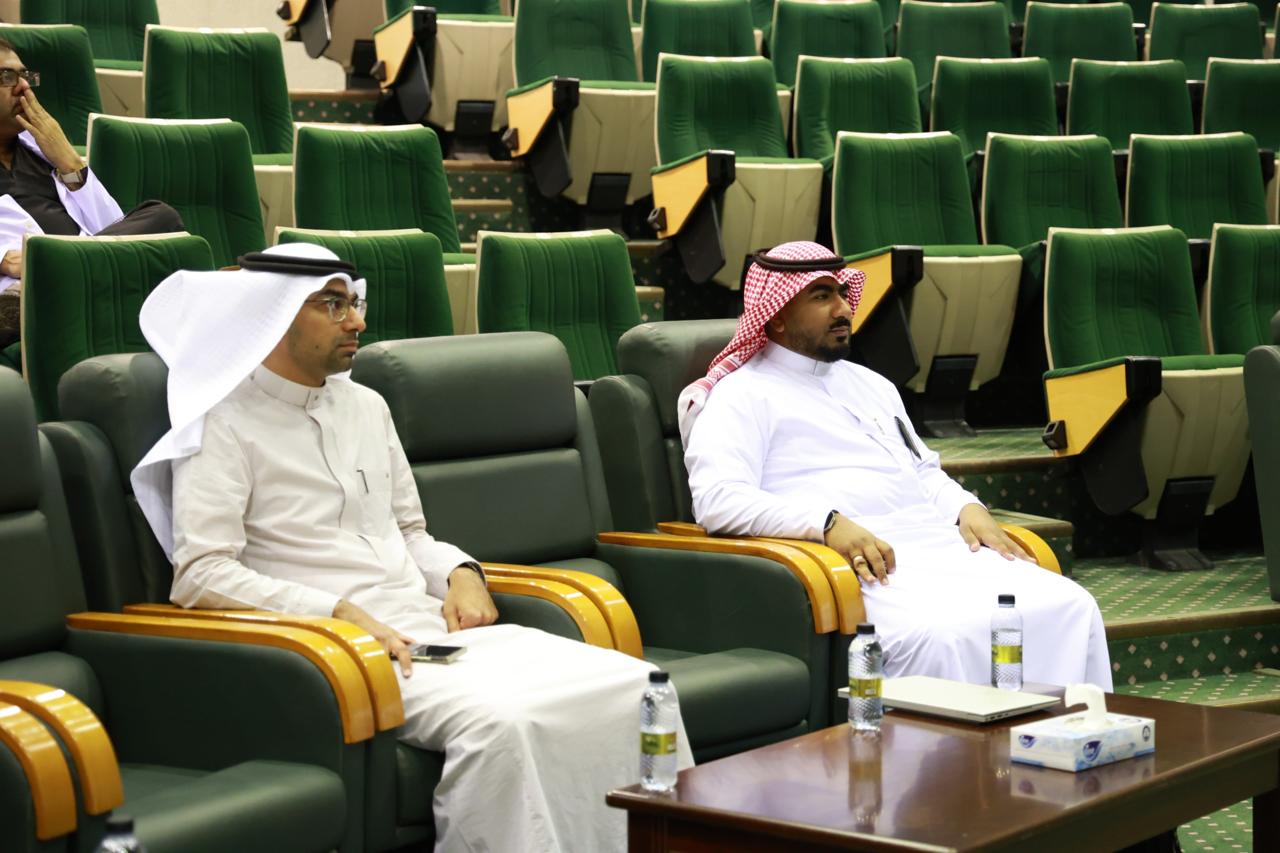
El programa se dirigió a profesionales sanitarios preocupados por el tratamiento del ictus de 10 hospitales remotos, incluidos los de los departamentos de Urgencias, Medicina Interna y Neurología.
El programa, facilitado por expertos en el campo, incluyó sesiones sobre obtención de imágenes en el ictus agudo, las prácticas recomendadas para la trombólisis i.v., el reconocimiento y la evaluación temprana, el tratamiento endovascular y la NIHSS, y concluyó con una simulación de circuito.
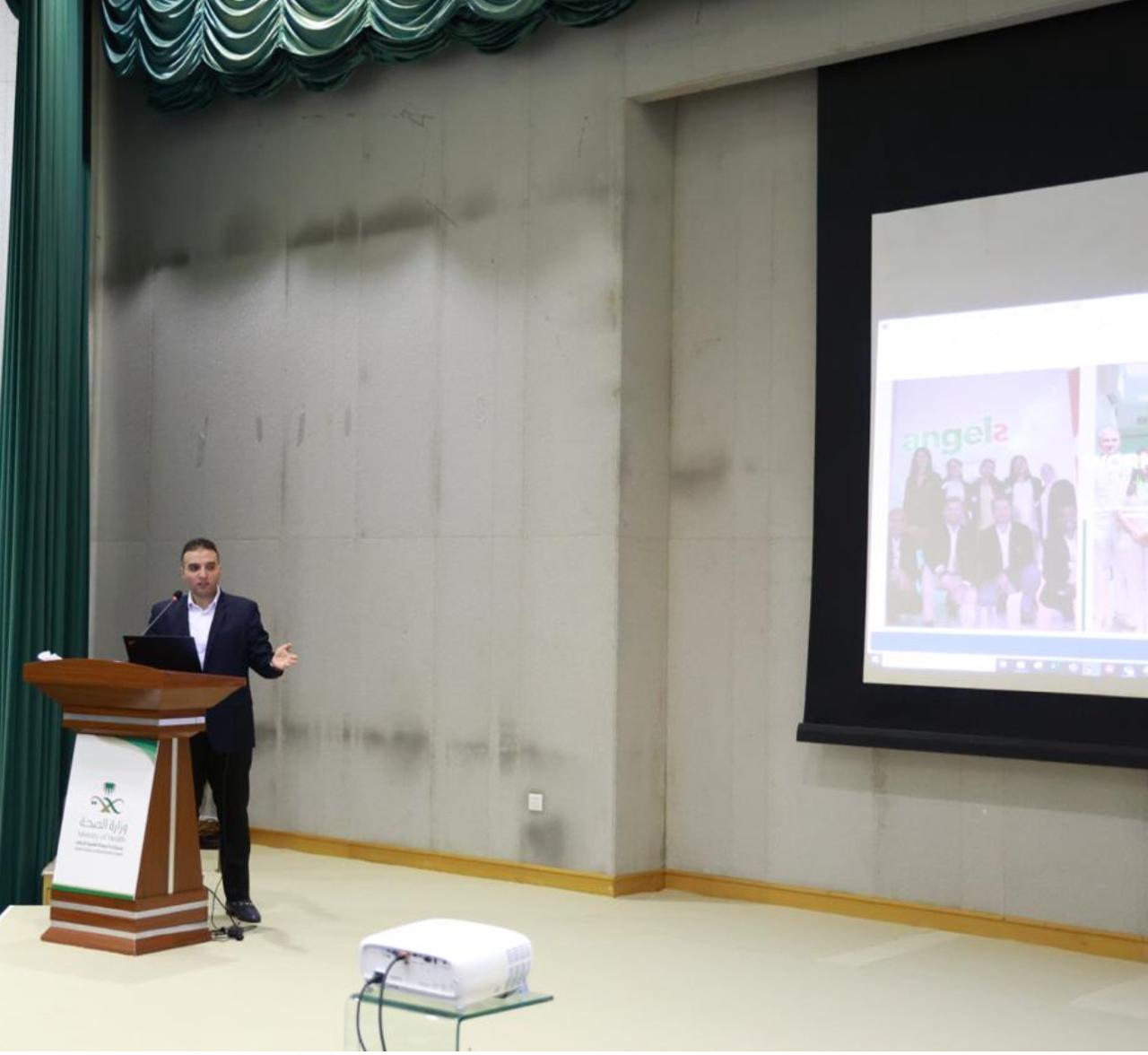
En los comentarios publicados en Linked, el Dr. Omar Alhamdan, Lead of Stroke and Neurology services in Riyadh 3rd health cluster in the Ministry of Health, señaló el Dr. Mouminah y director del programa de neurología en el Departamento de Reyes, el Dr. Majid Kakheet, por sus contribuciones. Escribió: “Nos sentimos honrados y privilegiados de alojar el programa MOH de preceptorado del ictus”.
Ahmed dice: “El programa fue bien recibido, y el ministerio de líderes sanitarios y los asistentes expresaron su agradecimiento por las sesiones prácticas y exhaustivas”.
Los alumnos de ambos preceptorados regresaron a sus respectivos hospitales preparados para influir de forma significativa en la atención del ictus en sus comunidades y continuar la cadena de transformaciones que, en última instancia, dará a miles de pacientes con ictus una segunda oportunidad en la vida.


